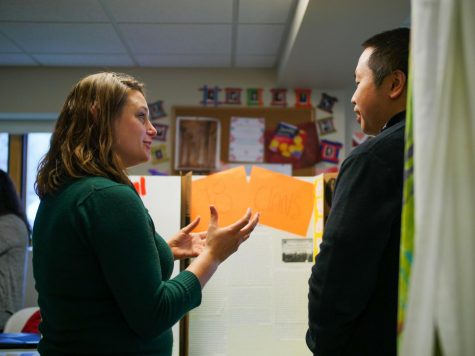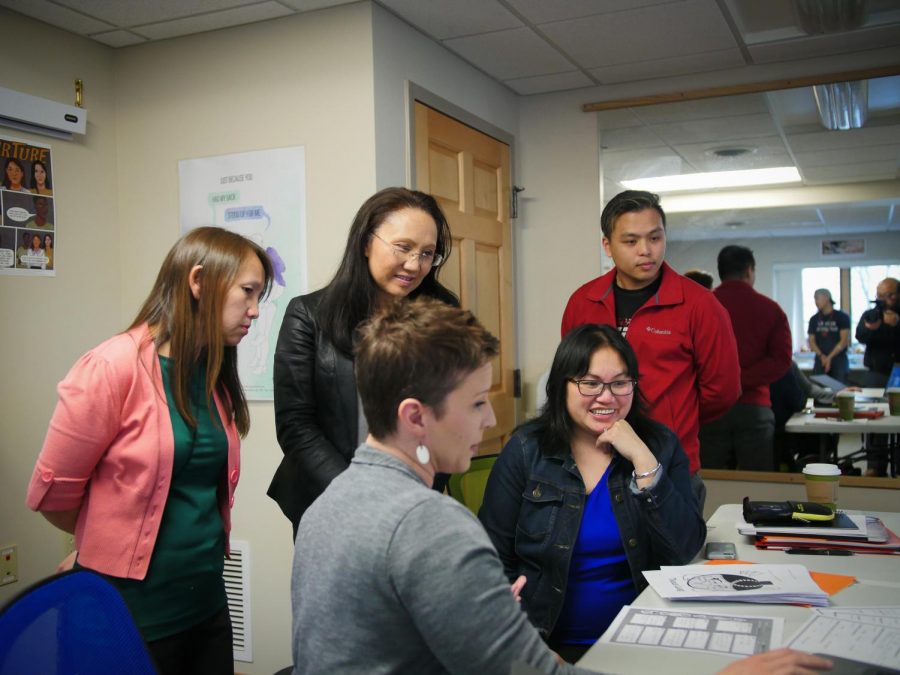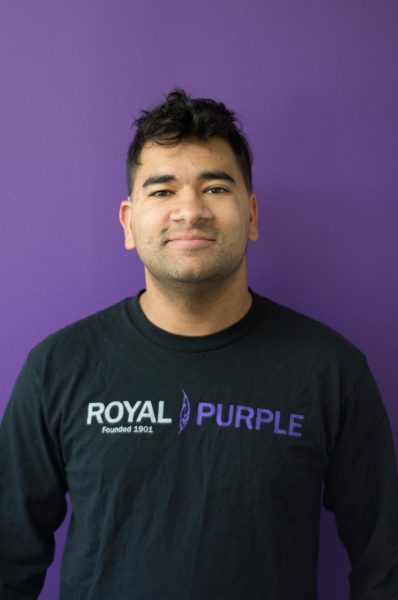Web resources preserve Hmong language
Heritage Language Education Project Partner Pang Yang collaborating with other educators of the project on the website.
March 21, 2021
The Heritage Language Education Project brought educators to UW-Whitewater to work on a website that would create a place for children, elders and people of all ages to learn the Hmong language and its culture. Hmong is a heritage language from the Southeast Asian ethnic group and a major component of Hmong culture. The practice of speaking the language is dying out from a loss of teachings in school. The goal of the project is to help others understand Hmong language, culture and its people.
The Heritage Language Education has many goals for when it comes to working together on Hmong language and its culture in different scenarios. They have been working on this project for four years to create a website as a resource for everybody in the community to use.
“It’s a community driven participatory project, its goals are first to identify from Hmong language, literacy, language, arts, culture, educators and community members. This is elders and young people who are learning long what already existed within the community in terms of curriculum and teaching practices and resources that includes books and other things like that. And then to build off of that, to identify what was needed to strengthen the reclamation, the language and culture, education work that our Hmong educators have been doing and are trying to do across the country,” said Assistant Professor of Curriculum and Instruction, a Partner in the project Jenna Cushing-Leubner on what the project is and what their goals are.

Long four years process from the beginning when they first started, gathered information from the start up and worked on getting the process together on creating the Hmong web resource website.
“ Most teachers were traveling from the Midwest to California to observe and to share resources. Our first year, we created these units, we made them free, available and public to anybody who wanted to be able to use them on Hmong language education settings with the help of English. In the second year, we had other teachers using the units that other teachers have created to try them out to add to them and expand them. We moved into another area where teachers are saying that they really needed support. What we did was we brought together teams of teachers together with Hmong language, literacy and culture experts within the community. They are elders, also community members who aren’t teachers, but have deep abilities expertise with language literacy, and cultural practices. We brought them together and teams, they worked for that year, they developed, created teaching, learning guidelines for teachers to be able to use and access,” said Cushing-Leubner on the process that went from the creation of the website.
From the process that made the website, it also becomes a very important foundation for language teachers, the community, and many other ways for the culture to continue on.
“It is kind of our journey on the website, because we know that there’s this need that is not being fulfilled. People may be doing it in different parts and pieces across the country. But to have to have a website, where it has all the things that you need all in one place is so important, especially when Hmong language teachers do not have enough time in the day to be searching for all these things. But if it’s all in one place, and it makes it so much easier for folks as well. We also piece together some resources, some resources that are out in the community. That can also be helpful to folks as well, like mental health, such as books with this language,” said Project Lead, Pang Yang on the importance behind this website that they created.
The website works on trying to save the Hmong culture through it’s language by continuing it further on into the future and not be left in the past.
“I think without the resources, there is so much that every generation less than of the teachers know what is Hmong culture we may know some level, but deep inside we may not have that knowledge. I know that some of our Hmong teacher cultural experts have done some work, lessons on it and it’s good to see a lesson of traditional singing. We have teachers who are so skilled, could do it so flawlessly and beautifully that they can teach the next generation to not lose it. The videos are embedded in the materials, they can listen or watch and learn on the website. In the long run, if people see value in it, and if people want to preserve it, this is a website that’s going to help bring longevity to the language so that it will survive that 100 year mark,” said Yang on how this website impacts the Hmong culture.
“The future is in your hands, if you want to save the language, it must begin with you,” said Pang. Go check the website at https://www.hmonglanguageresourcehub.org/. If you have any questions, contact Jenna Cushing-Leubner at [email protected].














